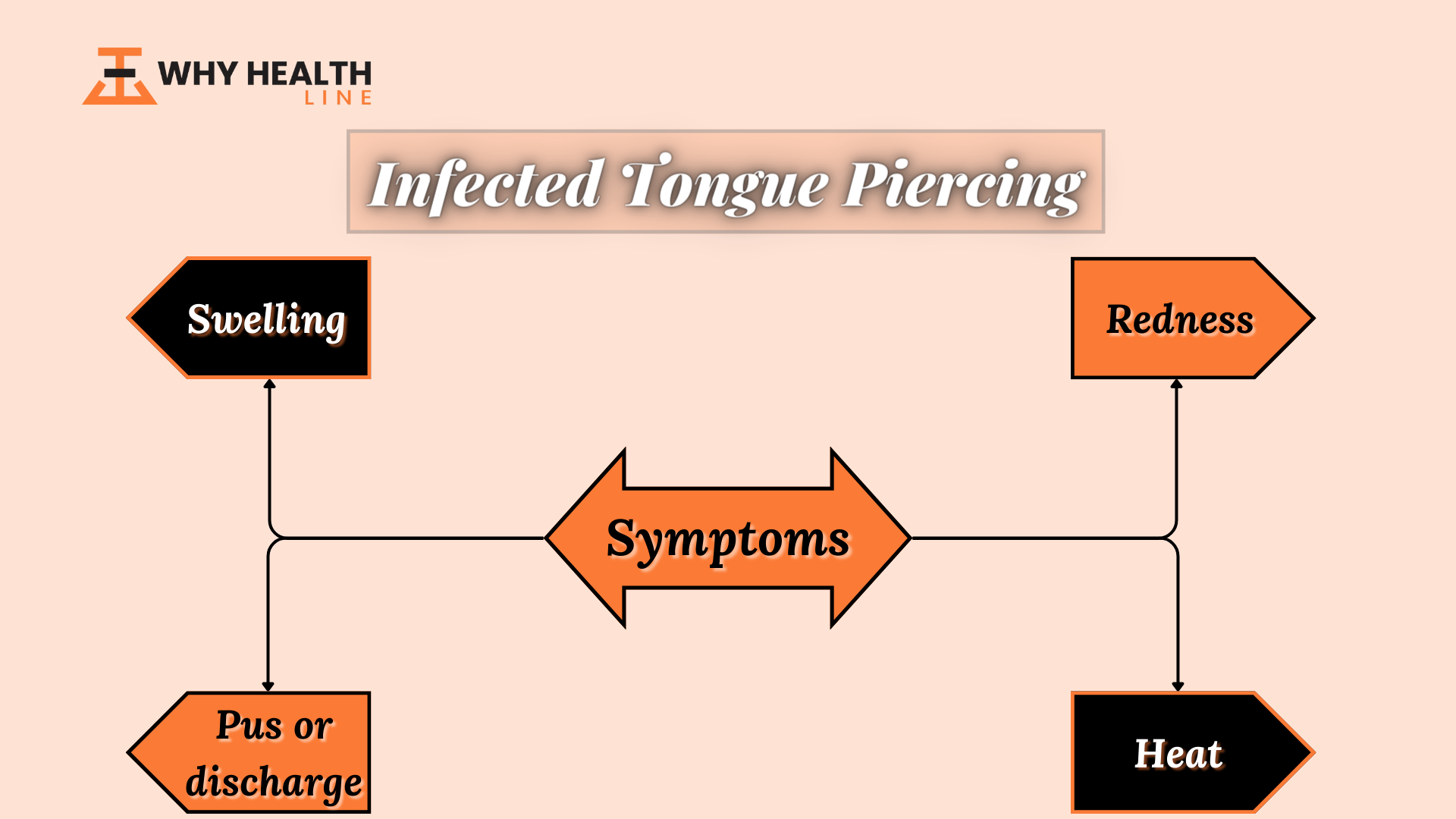
Introduction
Tongue piercings have gained popularity recently as a form of self-expression and body modification. However, like any body piercing, tongue piercings come with certain risks.
One of the most common complications is an infection. This article will explore the causes, symptoms, and treatment options for an infected tongue piercing.
Causes of Infection
An infected tongue piercing results from bacteria or other germs entering the wound, proliferating, and triggering an inflammatory reaction in the body.
A tongue piercing is susceptible to developing an infection for several reasons, including the following:
- Poor Oral Hygiene: It is possible to raise the risk of bacterial growth and infection in the mouth by not practicing good oral hygiene, such as not using an antiseptic mouthwash or cleaning your teeth consistently.
- Contaminated Tools or Jewelry: The introduction of bacteria into the piercing site can be caused by using unsterilized piercing needles or jewelry, which can result in an infection.
- Touching the Piercing: If you continue to touch or play with the piercing without washing your hands, you risk transferring bacteria from your hands to the wound, which raises the probability that you may have an infection.
- Oral Contact: Before the piercing is completely healed, engaging in oral activities like kissing or oral intercourse might introduce bacteria to the region. These behaviors include oral piercing.
Symptoms of an Infected Tongue Piercing
An infected tongue piercing can cause various symptoms. Here are some common signs and symptoms to look out for:
Pain and Tenderness: You may feel greater pain, soreness, or discomfort in the area where the piercing was performed. It may become even more difficult than the initial healing phase.
Swelling: It’s possible for the region around the piercing to swell up and seem puffy. Because of this, it may be difficult to communicate, eat, or move your tongue comfortably.
Redness: The area where the piercing was performed can look redder than usual or have a dark red hue. It is possible that it is an indication of inflammation as well as an infection.
Heat: The area may feel warm to the touch due to increased blood flow and inflammation.
Pus or discharge: You might notice the presence of pus or a thick yellowish discharge around the piercing. This indicates the presence of infection.
Foul odor or taste: An infected tongue piercing can produce a foul odor or an unpleasant taste in your mouth. This can be due to the accumulation of bacteria or discharge.
Difficulty in eating and speaking: In some cases, swelling and pain can make eating or speaking challenging.
Lymph node enlargement: The nearby lymph nodes, such as those under your jaw or neck, may become swollen and tender.

Treatment Options:
Here are some common treatment options for infected tongue piercings:
-
Antibiotics
To prevent the growth of germs, antibiotics, either orally or topically applied, may be recommended to the patient, depending on the severity of the infection.
-
Warm Saltwater Rinses
Gargling with warm salt water several times daily can help reduce inflammation and keep the affected region clean. Gargling can also help keep the area from becoming infected.
-
Avoidance of Irritants
Avoiding alcohol, tobacco, spicy foods, and other irritants can help prevent further irritation and promote healing.
-
Proper Oral Hygiene
It is necessary to practice appropriate oral hygiene. Brush your teeth and tongue gently twice a day with a toothbrush that has soft bristles, and refrain from using mouthwashes that include alcohol until the infected tongue piercing has completely healed.
After each meal, rinse your mouth with an antiseptic mouthwash to remove food particles and germs.
-
Follow Professional Advice
Following instructions from your healthcare provider or piercer regarding aftercare, cleaning solutions, and timelines for changing jewelry is essential.
Prevention:
Here are some steps you can take to help prevent infection in a tongue piercing:
- Clean your Mouth: After each meal, especially after eating anything other than water, you should give your mouth a thorough rinsing with an antimicrobial mouthwash that does not contain alcohol. Use a soothing mouthwash that does not contain alcohol and does not have any harsh ingredients that could irritate the infected tongue piercing.
- Practice Good Oral Hygiene: You should thoroughly brush your teeth twice daily with a toothbrush with soft bristles. Pay particular attention to the region around the piercing and clean it carefully to remove any plaque or dirt that may have accumulated there.
- Avoid Touching the Piercing: It is important to avoid touching your infected tongue piercing with unwashed hands because it might spread bacteria and lead to an infection. If you need to clean the region, your piercer may suggest using a saline solution or a light saline rinse.
- Avoid Oral Sexual Contact: Because oral sex and other activities that could potentially introduce bacteria into the piercing raise the risk of infection, you should avoid indulging in these activities as much as possible.
- Avoid Smoking and Alcohol: Both smoking and drinking alcohol can slow the healing process and make an injury more susceptible to infection. It is in your best interest to stay away from them until your piercing has completely healed.
- Follow Aftercare Instructions: Follow the aftercare instructions provided by your piercer diligently. This may include using a saline rinse or solution to clean the piercing, avoiding certain foods, and refraining from changing the jewelry until the piercing has healed.
- Avoid Certain Foods and Drinks: Spicy, hot, and acidic foods can irritate the piercing and slow healing. Avoid alcohol, caffeine, and carbonated beverages, as they irritate the piercing site.
- Be Mindful of Oral Hygiene Products: Use mild, alcohol-free, and fragrance-free toothpaste. Avoid using mouthwashes that contain alcohol, as they can dry out the piercing and delay healing.
The Real Danger of a Tongue Piercing
Conclusion
In conclusion, an infected tongue piercing is a serious issue that should not be ignored or taken lightly. If left untreated, it can cause significant discomfort and potentially lead to more severe complications.
Infected tongue piercings can exhibit symptoms such as pain, swelling, redness, discharge, and difficulty speaking or eating. If that your tongue piercing is infected, it is crucial to seek professional medical advice promptly.